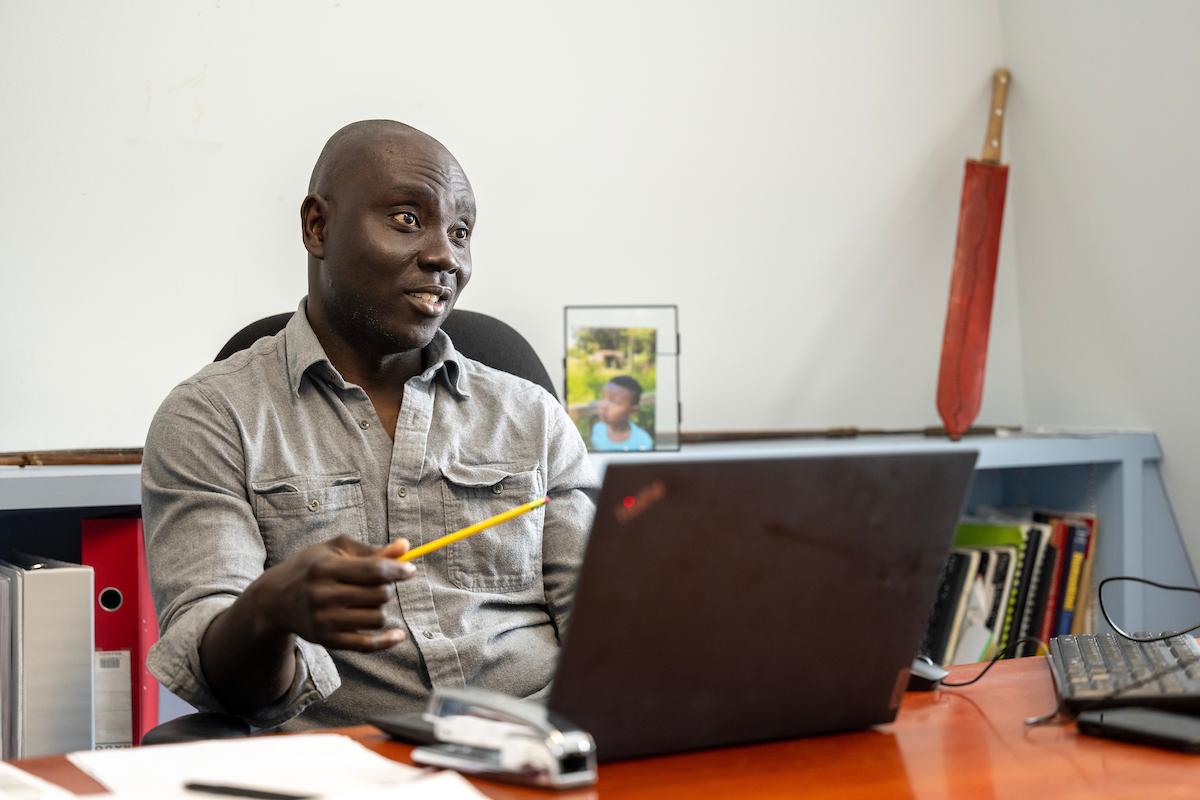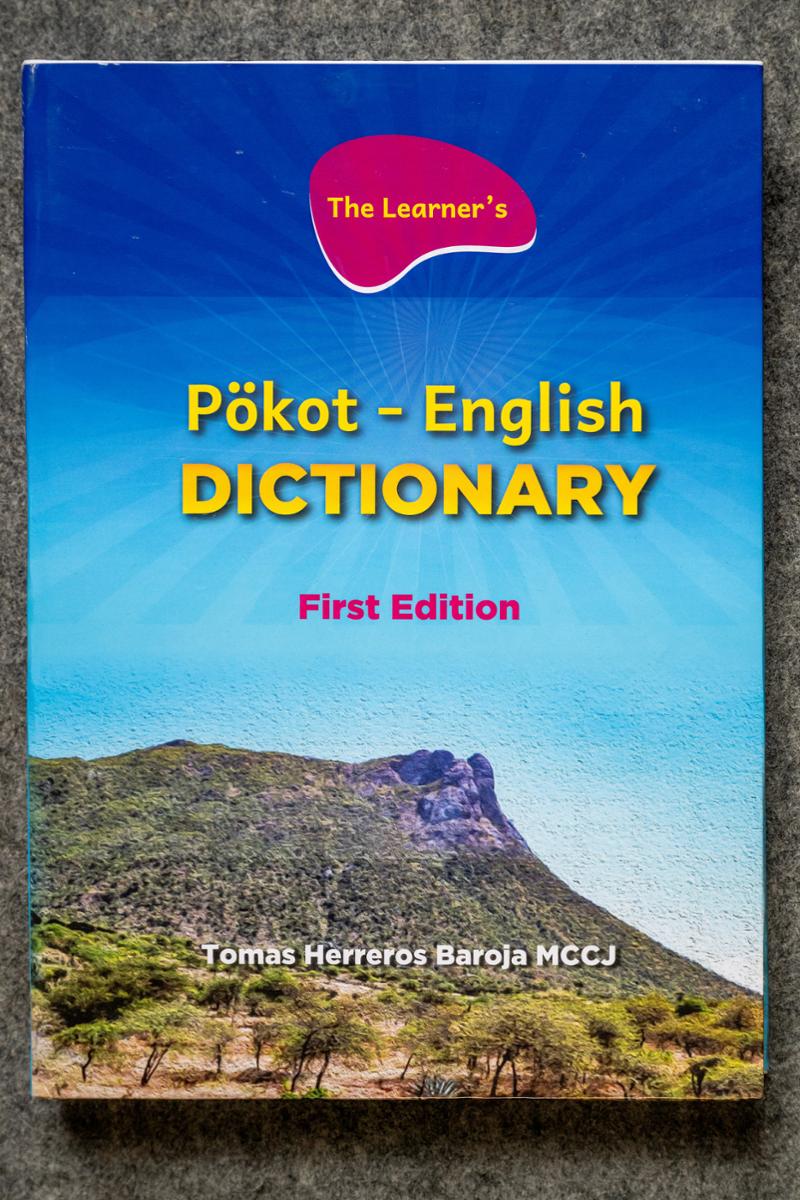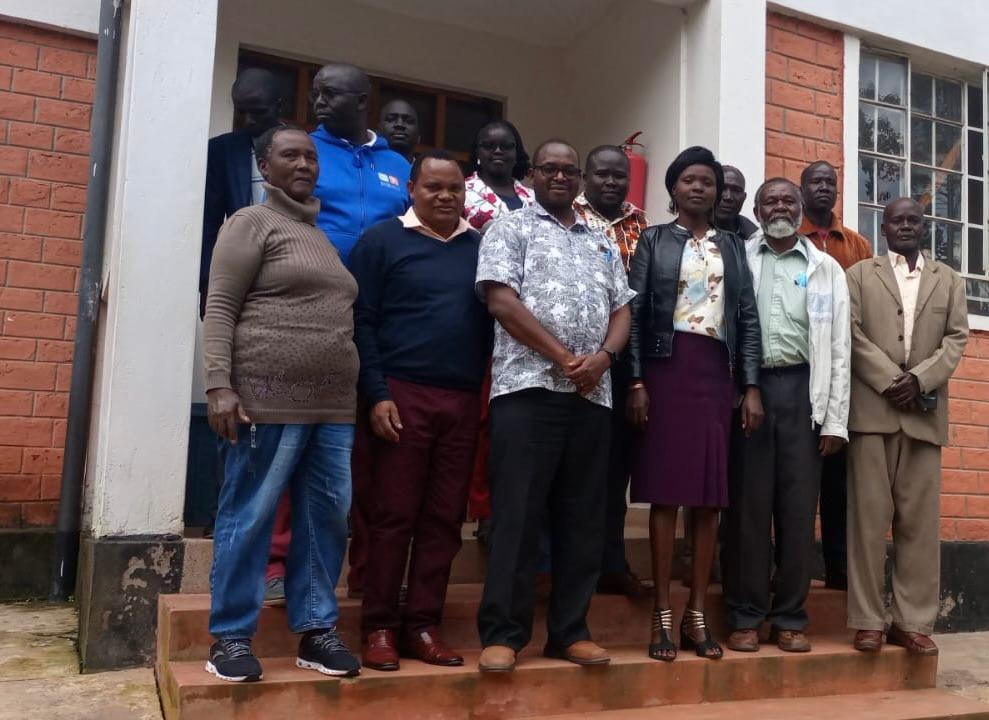F&M Stories
Saving an African Language
A Franklin & Marshall College anthropology professor heard the calling and helped save a native tongue spoken by less than 1 million people in a distant corner of Africa.
“I think Pokot is a peculiar language whose study might give us a better historical and linguistic understanding of Kalenjin and other Southern Nilotic groups,” says Quincy Amoah.
A cultural anthropologist, Amoah’s research is largely focused in East Africa, a region where Pokot is spoken in the northern borderlands of Kenya and Uganda. While he was doing fieldwork there a few years ago, Pokots approached him about resuming an incomplete project.

Professor Quincy Amoah helped produce the first dictionary for Pokot, an African language.
They wanted someone to help them finish standardizing and preserving their language in a dictionary. It was a project started nearly 45 years ago by three Italian Catholic missionaries and later, a Dutch missionary and anthropologist.
The priests produced a study of Pokot grammar and vocabulary. Later, one of the priests and a group of Pokot intellectuals made a lexical compilation that rested in an archive until the Dutch missionary edited the material into a pamphlet-like lexicon in 1997, Amoah says.
“The Pokot people themselves wanted a dictionary because they are losing a lot of vocabulary and because of the influence of Swahili,” he says. “Swahili is a Bantu language, where the structure is mostly Bantu, and Pokot is a Nilotic language. And Swahili is lingua franca; everyone speaks Swahili in Kenya and some parts of Uganda.”
To finish the dictionary, Amoah started funding workshops, brought elders together, worked on their materials, and organized local intellectuals. The local intellectuals had formed an organization called the Pokot Library Advisory Committee (PLAC) with the sole aim of promoting Pokot intellectual and cultural life. PLAC was crucial in keeping the project going.
Then, with funding from F&M Interim Provost Mary Osirim, “We hired consultants to train some Pokot people in phonology and to do the dictionary themselves,” Amoah says.
Fruits of this labor produced a first edition of “The Learner’s Pokot-English Dictionary,” published last year. Amoah and F&M are graciously acknowledged in the opening pages.
Fruits of this labor produced a first edition of “The Learner’s Pokot-English Dictionary,” published last year. Amoah and F&M are graciously acknowledged in the opening pages.
To finish the dictionary, Amoah started funding workshops, brought elders together, worked on their materials, and organized local intellectuals. The local intellectuals had formed an organization called the Pokot Library Advisory Committee (PLAC) with the sole aim of promoting Pokot intellectual and cultural life. PLAC was crucial in keeping the project going.
Related Articles
January 20, 2026
A Q&A with Faculty Artists: ‘Masked & Unmasked’
A new exhibition at the Winter Visual Arts Center spotlights two faculty artists as well as the range of mediums and techniques students experience at F&M.
December 18, 2025
Innovative Workshop Fosters Dialogue about Importance of AI Literacy
As generative artificial intelligence continues to impact teaching and learning on college campuses, Franklin & Marshall is pioneering inventive ways to help students build critical literacy skills they need to compete and excel in an AI-infused society. Associate Professor of Sociology Caroline Faulkner and Senior Instructional Designer Kelly Miller offered a four-part workshop for faculty to help them guide students navigating AI for a wide variety of academic purposes.
November 21, 2025
What is Extended Reality–and Why are F&M Students Researching It?
Learning by doing is in our DNA as Diplomats. For Sujal Shah ’27 and Kha Nguyen ’28, this meant collaborating with their computer science professor to research how extended reality can be used for safer, more effective employee training.


